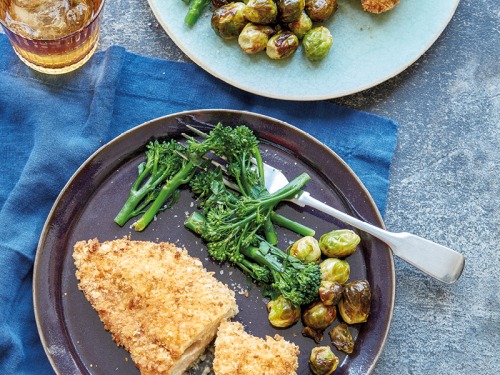The New Book that Celebrates Britain's Sheep Heritage by Philip Walling

Have you ever heard of a ginger lamb, seaweed-eating sheep or a shepherdess wearing her flock’s wool? Counting Sheep is a new book that celebrates Britain’s fascinating sheep heritage and Living North met its Belsay-based author, Philip Walling.
It was this ‘sheep ignorance,’ and his own experience and fascination with the animal, that gave Philip the desire to write a book dedicated to our country’s close connection with sheep. ‘I wanted to open people’s eyes to the beauty that has been created over centuries by man’s conjunction with the soil,’ says Philip.
‘Sheep are the way we till the soil and the way we make a living from the soil. Britain is a sheep growing country and it’s what we do best.’
The book has taken him, and so takes the reader, on enlightening (and very romanticised) geographical and historical journeys. From the mountains of Scotland, Wales and the Lake District, to the Pennine fells, raw Northumberland countryside, rich lowlands of the Midlands, the marshes of Kent and the moors of the West Country, they were all sheep-farmed by our ancestors, including the Vikings and the Romans.
Philip adds, ‘What struck me during my research was that many of the sheep breeds from ancient Britain are still around today in the exact same form as they would have been kept by iron age farmers. Nowhere else in the world has this. The UK is a living museum of sheep breeds.’
Despite his close affinity to sheep, and his passion for rural Northumberland, Philip was not brought up on a farm, and neither his father nor grandfathers farmed. Although fascinated by the land, his initial plan was to go to university, but poor A-Level results prevented him leaving his home in the Cumbrian countryside. ‘One of the best pieces of advice I have for young people these days is that academic failure isn’t the end of the world. For me it was marvellous, as it was the reason I got into farming.’
Philip went to work for a Herdwick sheep breeder in the Lake District who introduced him to sheep farming, the rawness of the landscape, the art of handmade dry-stone walls and the beauty and intelligence of sheep dogs. ‘I soon realised that failure had opened up a whole new wonderful world to me,’ he says.
The story of how he acquired his own first farm is reminisced in the opening chapter of his book, and has a touch of old-fashioned kindness and magic. During horrendous snow storms at the time of the Second World War, Philip’s grandfather received a phonecall from a nearby farmer asking if he could help form a search party to find a young soldier called Sale, who had gone missing after leaving the farm where he was staying (with his aunt) to walk to the nearest train station, which was six miles away.
The Wallings’ search party found the soldier exhausted and weak in a snowdrift, so rescued him and took him back to the Sale family, who never forgot the good deed. A few years later when Philip was looking for a farm, they offered him tenancy of their farm at a generously low rate, before selling the property and land to him at a heavily discounted price.
But despite his love for sheep farming, Philip always battled with the fact he’d possibly not fulfilled his potential. ‘Looking back it was ridiculous to think there was anything better than what I was already doing.’
At the age of 29, and with a wife and two children, he applied to Lancaster University to study Law with Medieval History. The reason for his course choice? Law promised a rewarding income and medieval history had always been something he was interested in.
He even thought that by becoming a lawyer he could combine his work in the courts with running a farm. ‘It was pretty stupid to ever believe that,’ he says, ‘But I suppose I never really wanted to let go of farming.’ His law career took up more time than he imagined, and saw him working in London before moving back up north, this time to Newcastle, to work as a barrister.
Philip’s next career move was always going to have connection with the land, but this time he wouldn’t have the responsibility that comes with running a farm. He did, however, want to share with the world his first love: sheep. And so he wrote Counting Sheep, which has a first print run of 5,000.
The concept behind Counting Sheep may not appeal to everyone, but as well as the history of sheep breeding, and insights into the development of Britain’s 64 native breeds, Philip’s book is also full of anecdotal sheep tales.
From the seaweed-eating flocks of North Ronaldsay to the Lincolnshire shepherdess whose wedding dress was made from the fleece of her Lincoln Longwools, the book is brought to life with entertaining facts and stories. There’s also lots of local knowledge too, such as the story behind Hexham’s very own Bluefaced Leicester, the largest ram sale in Europe at Kelso, Hawick’s place on the world’s wool stage and the secrets behind the soft-wooled Northumberland Blackface.
You may wish to remain blissfully unaware of how sheep have shaped Britain, but if you find yourself wanting to know more about the farmer in the Borders who created a completely new breed of sheep that sheds its own fleece to spare him the cost of shearing, and the Portland breed that are born with bright ginger wool, you can educate and entertain yourself with this unique set of tales.
Counting Sheep by Philip Walling, £14.99 Profile Books








